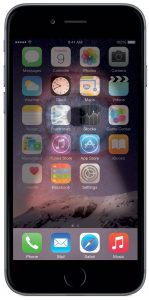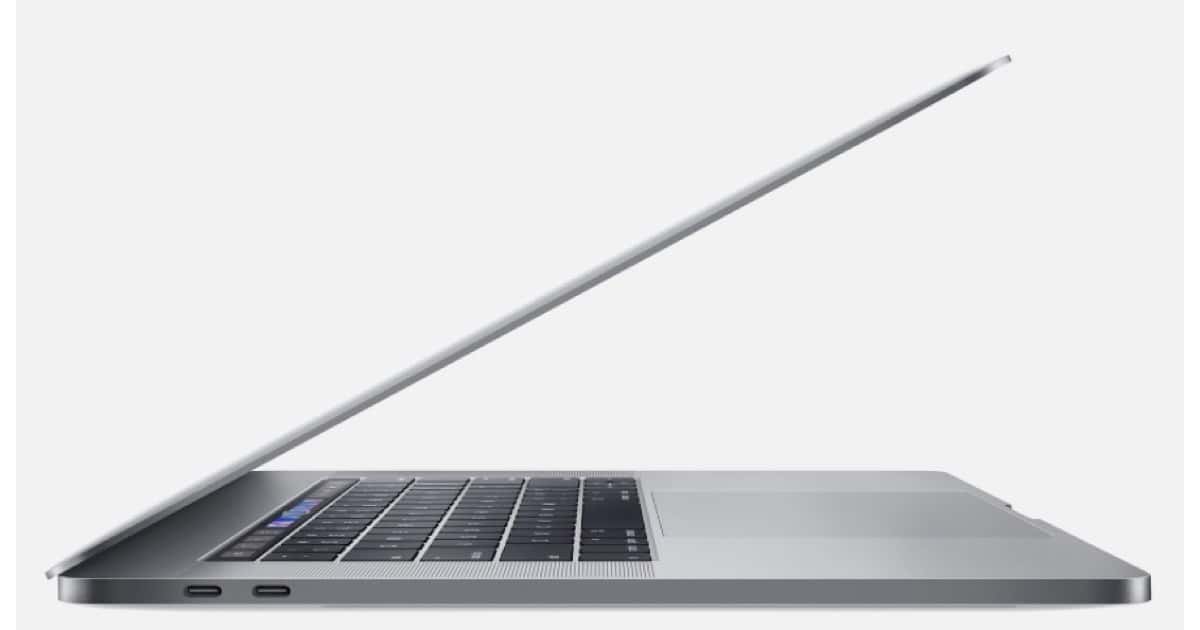Page 2 – News Debris For The Week of July 16th
Web Spying for Profit

The World Wide Web is a complicated market place. Everything you do there is scrutinized for posible financial gain, and it’s done in secret under the guise of innocent, boldly advertized services offered. This week, we learned how far it’s going in a story that got national news attention.
From the article:
With little public scrutiny, the health insurance industry has joined forces with data brokers to vacuum up personal details about hundreds of millions of Americans, including, odds are, many readers of this story. The companies are tracking your race, education level, TV habits, marital status, net worth. They’re collecting what you post on social media, whether you’re behind on your bills, what you order online. Then they feed this information into complicated computer algorithms that spit out predictions about how much your health care could cost them.
This is why it’s even more important to identify a favored ecosystem, like Apple’s, that actively tries to protect your privacy. And then layer that with good privacy practices such as VPNs, minimizing your services footprint, and so on.
And to top it all off, those databases on hundredes of millions of Americans then become targets for malicious hackers. And so it goes.
More Debris
• Who owns machine learning models? The developer, of course. What if the model is stolen and used for financial gain? IBM has cleverly developed a technique to prove ownership. “IBM’s AI watermarking method protects models from theft and sabotage.” While this seems like a customary thing to do, it also give me hope for AI’s future that the right motivations and values can be inculcated into our advanced AI systems. That is, if developers chose to do so.
• In a 1711 poem, Alexander Pope wrote: “Fools rush in where angels fear to tread.” So it also seems with Samsung. See: “If this is Samsung’s $1,500 foldable phone, no one’s going to buy it.” Of course, the TV SciFi series, Earth: Final Conflict and its very cool folding display communicator set the bar no one has yet achieved.

• However, one thing that one might surmise is that, like iPhone displays, Apple Watch displays will get bigger. The issues are as you’d suspect: cost, display technology on a, perhaps, curved display, and scratch resistance. He’s a tantalizing preview and a discussion at AnandTech of next generation Gorilla Glass.
• These stories just won’t go away. This time, it’s a Chinese smart home manufacturer Diqee that builds a Roomba knockoff. “A vacuum vulnerability could mean your Roomba knockoff is hoovering up surveillance.” I’m beginning to suspect the design is mandated for the Chinese market.
• Finally, I’ll finish with a bit of interesting, good news. “Research team finds physics treasure hidden in a wallpaper pattern.” I found this quote enticing.
Some scientists have theorized that topological insulators, which insulate on their interior but conduct electricity on their surface, could serve as a foundation for super-fast quantum computing.
As with the IBM article above, when technology development inherits a proper purposefulness, wonderful things can be achieved.
Particle Debris is a generally a mix of John Martellaro’s observations and opinions about a standout event or article of the week (preamble on page one) followed on page two by a discussion of articles that didn’t make the TMO headlines, the technical news debris. The column is published most every Friday except for holiday weeks.

The way the thermal throttling issue is handled on the web seems to me like a good example of the Internet eating up itself. So-called “influencers” producing content disguised as “information” but without a reliable foundation and in many cases with the intention to change people’s views in a certain way will ultimately damage the web. This is also true for influencers trying to put out false content in order to feed people with what they want to hear just to get some clicks and make some money.
At its core the web was built to communicate information. The people I mentioned above use it as a tool to communicate bullshit. Go figure that this means for the web and its value for the rest of us.
John:
Very nice, wide-ranging themes with this week’s PD.
To begin with, permit a somewhat oblique assessment of the 2018 MBP thermal throttling issue; the one important take away in my view is the importance of two things that we routinely use in science to great effect and ultimately public benefit; peer review and experiment replication. It is tempting, upon hearing of a new finding, particularly one with potentially adverse effects, to leap not only to conclusions but to actions that may be unwarranted and not in our own best interests.
The first tool that the scientific community uses, peer review of any work prior to publication, is done by independent experts in the field, and increasingly involving a multidisciplinary selection of such experts who will focus on different aspects of that work, prior to accepting it for publication. Although there have been notable escape mutants to the peer-review process (not simply poorly done science inexpertly reviewed but successful cheats and exploits of that system’s limitations despite good review) this prevents the bulk of potential errors and misleading conclusions from reaching the light of day, including by honest scientists being compelled to throttle back any conclusion over-reach from their work. This does not apply to YouTube or other posts on the internet, whether or not posted by qualified scientists. The point being, the qualifications of the investigator are important, but so too is the independent critical review, prior to public sharing, by other experts in the field.
Consumers of internet posts live in the world of laissez-faire publication, and its offspring, Caveat emptor consumption. Welcome back to the 19th Century.
The other tool is that of replication of previous work. Despite peer review, statistical analysis assures us that even highly unlikely outcomes can and will happen, even under highly controlled and documented conditions, in at least 1 out of every Xth time; that’s not Murphy’s Law but simply Central Limit Theorem at work. The only proven antidote to this is for another team to attempt to replicate that experiment, with as much fidelity as possible, and report their findings. In some cases, they may opt not to perfectly replicate, but to expand the number of variables under test conditions if, for example, it is felt that the original experiment was too restrictive and therefore insufficiently representative of, and hence generalisable to, real world conditions. That same Central Limit Theorem predicts that, broadly speaking, the more repetitions we do, the closer we get to ‘the truth’. This is why both study design and repetition are vital pillars of both science and public safety.
In this case, the latter has proved to be an important qualifier of David Lee’s original finding, despite his known expertise and prior track record. While none of us will ever have the expertise to independently verify the findings of everything that affects our personal lives, we do rely on those with that expertise to step in and confirm, refute or qualify any and all claims, irrespective of the quality and limits of underlying science. Given the swift response by other experts, not to mention any future response by Apple, including necessary OS software and firmware updates (macOS Mojave is still in beta), this should be sorted relatively soon.
The issue with health insurers hoovering up our personal data, whether or not to the detriment of the individual, is concerning. Without getting into the broader issue of relying on a risk mitigation tool (insurance) to cover the cost of something that every user will routinely use with 100% certainty, a topic too involved for this forum, you are correct to argue that consumers should take every precaution to safeguard their data. The obvious counter measure from industry would be to penalise all consumers whose data go dark – assume the worst of these customers. What is needed is legislation to better protect the vulnerable (consumers) from the powerful (industry) in this asymmetrical resolution of competing and conflicting of interests.
And speaking of hoovering, the Diqee vacuum cleaner story is yet another cautionary tale against uncritical adoption of smart technologies that, to date, are questionably if not insufficiently hardened against remote attack. Again, Caveat emptor.
IBM’s AI water marking method is an example of the private sector response to the current climate of rampant IP theft, often state-sponsored. That they’ve published the algorithm’s limitations, including that it doesn’t work for offline models and is vulnerable to ‘prediction API’ attacks, is not only good due diligence but a reminder that we still need a broad platform of effective global, enforceable deterrents against such theft.
Finally, Nanowerks piece on ‘Wallpaper fermions and the nonsymmorphic Dirac insulator’, originally published in Science, is a great reminder of the interplay between science and the arts, and why a broad eduction remains essential to progress.
All good stuff.
It has been interesting. When the report about possible overheating in the I9 MBP came out I expressed doubt. First the source was just some guy on the internet, the article itself pointed out several flaws in the testing regime, and the conclusions, and it was only one system. I have been villified for expressing doubt. As you said many on the web seem to want Apple to ship flawed junk that fails.
Forgot to include that this was to an article on 9to5 Mac.
I’m not sure if it’s correct but there have been reports that David Lee had a test unit from Apple for review.
I doubt he’ll be on that list in the future.